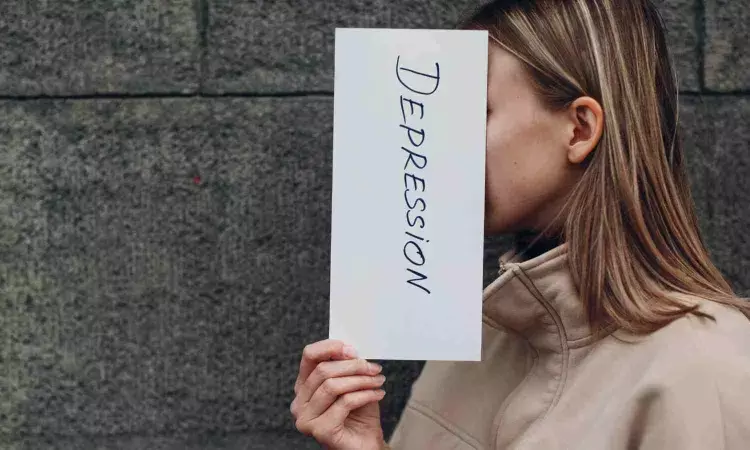- Home
- Medical news & Guidelines
- Anesthesiology
- Cardiology and CTVS
- Critical Care
- Dentistry
- Dermatology
- Diabetes and Endocrinology
- ENT
- Gastroenterology
- Medicine
- Nephrology
- Neurology
- Obstretics-Gynaecology
- Oncology
- Ophthalmology
- Orthopaedics
- Pediatrics-Neonatology
- Psychiatry
- Pulmonology
- Radiology
- Surgery
- Urology
- Laboratory Medicine
- Diet
- Nursing
- Paramedical
- Physiotherapy
- Health news
- Fact Check
- Bone Health Fact Check
- Brain Health Fact Check
- Cancer Related Fact Check
- Child Care Fact Check
- Dental and oral health fact check
- Diabetes and metabolic health fact check
- Diet and Nutrition Fact Check
- Eye and ENT Care Fact Check
- Fitness fact check
- Gut health fact check
- Heart health fact check
- Kidney health fact check
- Medical education fact check
- Men's health fact check
- Respiratory fact check
- Skin and hair care fact check
- Vaccine and Immunization fact check
- Women's health fact check
- AYUSH
- State News
- Andaman and Nicobar Islands
- Andhra Pradesh
- Arunachal Pradesh
- Assam
- Bihar
- Chandigarh
- Chattisgarh
- Dadra and Nagar Haveli
- Daman and Diu
- Delhi
- Goa
- Gujarat
- Haryana
- Himachal Pradesh
- Jammu & Kashmir
- Jharkhand
- Karnataka
- Kerala
- Ladakh
- Lakshadweep
- Madhya Pradesh
- Maharashtra
- Manipur
- Meghalaya
- Mizoram
- Nagaland
- Odisha
- Puducherry
- Punjab
- Rajasthan
- Sikkim
- Tamil Nadu
- Telangana
- Tripura
- Uttar Pradesh
- Uttrakhand
- West Bengal
- Medical Education
- Industry
Study: Neighborhood stress may impact kids' brains-and increase depression risk

Children who grow up in disadvantaged neighborhoods-areas with higher levels of crime and deprivation, and lower access to community resources-are at risk of developing depression and new research led by faculty at Binghamton University, State University of New York, may help to explain why.
Psychologists at Binghamton found that the brains of children from areas containing higher levels of deprivation show less response to reward and loss, but only if they were already at risk for depression based on a family history of the disorder. The team included Binghamton University Professor of Psychology Brandon Gibb, graduate student Elana Israel and former graduate students Cope Feurer and Aliona Tsypes.
“One of my interests is how neural reward processing relates to risk for depression. One thing that we know that impacts that is exposure to stress,” said Israel. “Prior research has looked at stress at the individual level-people reporting on traumas they've experienced or interpersonal stress-but less research has looked at community-level stressors.”
To examine this, the team conducted a study of over 200 children ages 7-11. The researchers conducted interviews to determine if their parent had a history of major depressive disorder. They also collected each child’s zip code, which provided information about their neighborhood such as risk of crime, levels of socioeconomic disadvantage, and more. The researchers then measured the brain activity of each child via electroencephalogram (EEG) while they completed a simple guessing task where they won or lost money.
Examining the data, the researchers found that children from more disadvantaged areas showed a blunted response to both reward and loss, especially children of parents with a history of depression.
“When something good or bad happens to you, your brain responds and we can measure that brain activity,” said Gibb. “And how you tend to respond to something good happening or something bad happening can increase your risk for things like depression. What this shows is that it's not just something happening to you personally, but it's the context you live in -- the levels of stress around you, whether or not it's directly happening to you.”
Gibb said that growing up in a chronically stressful environment, children may learn not to get too excited when good things happen and not to get too down when bad things happen, especially if they are already at risk because of a family history of depression.
“When you're chronically stressed, it could dampen your reaction to anything, whether it is good or bad,” said Gibb. “We want kids to be reactive when good things are happening. You should be excited. That's what gives you the motivation to engage and do things. So that's what we think is going on.”
Going forward, the researchers have started a new study that will let them look at what happens to children’s neural responses, and depression risk, when they move to a new neighborhood. The team also wants to expand this work to teenagers and see if similar types of effects are seen for social rather than just monetary outcomes, like peer acceptance and rejection.
Gibb said that this work highlights the need to address neighborhood characteristics when it comes to mental health.“Just being in these contexts can impact mental health, and these neighborhood characteristics can influence kids, even if they're not touched by it directly. So there are broader implications too, and even more reasons why we should try to improve our communities.”
Reference:
Israel, E.S., Feurer, C., Tsypes, A. et al. Parental History of Major Depressive Disorder Moderates the Relation Between Neighborhood Disadvantage and Reward Responsiveness in Children. Res Child Adolesc Psychopathol (2025). https://doi.org/10.1007/s10802-025-01310-4
Dr Kamal Kant Kohli-MBBS, DTCD- a chest specialist with more than 30 years of practice and a flair for writing clinical articles, Dr Kamal Kant Kohli joined Medical Dialogues as a Chief Editor of Medical News. Besides writing articles, as an editor, he proofreads and verifies all the medical content published on Medical Dialogues including those coming from journals, studies,medical conferences,guidelines etc. Email: drkohli@medicaldialogues.in. Contact no. 011-43720751


